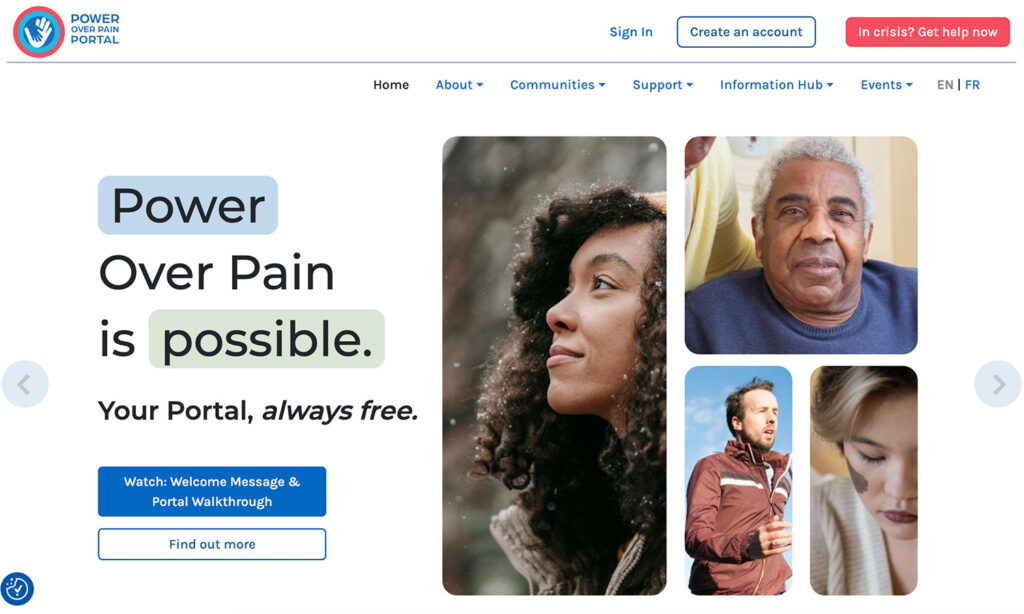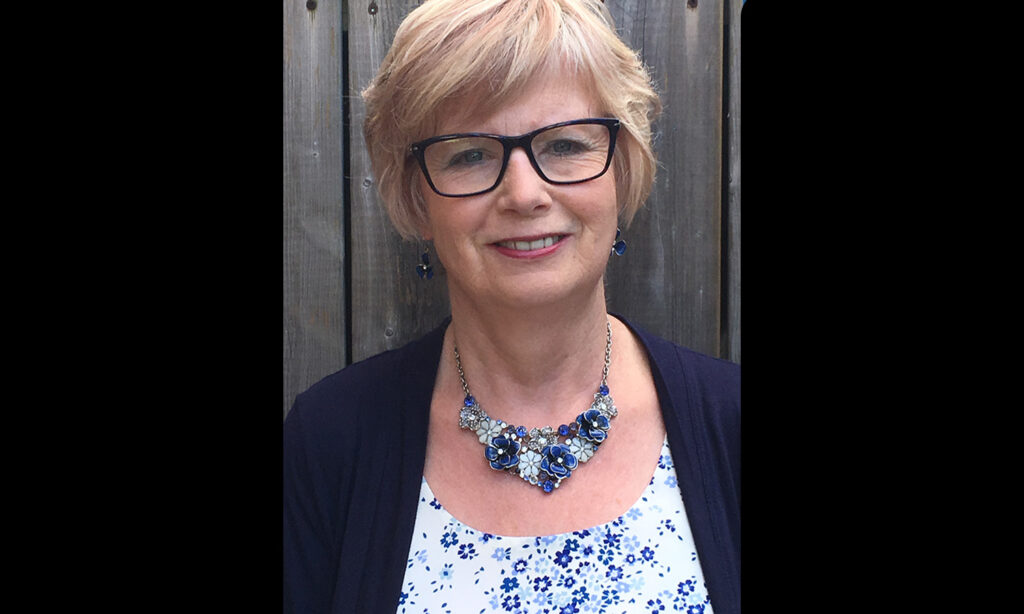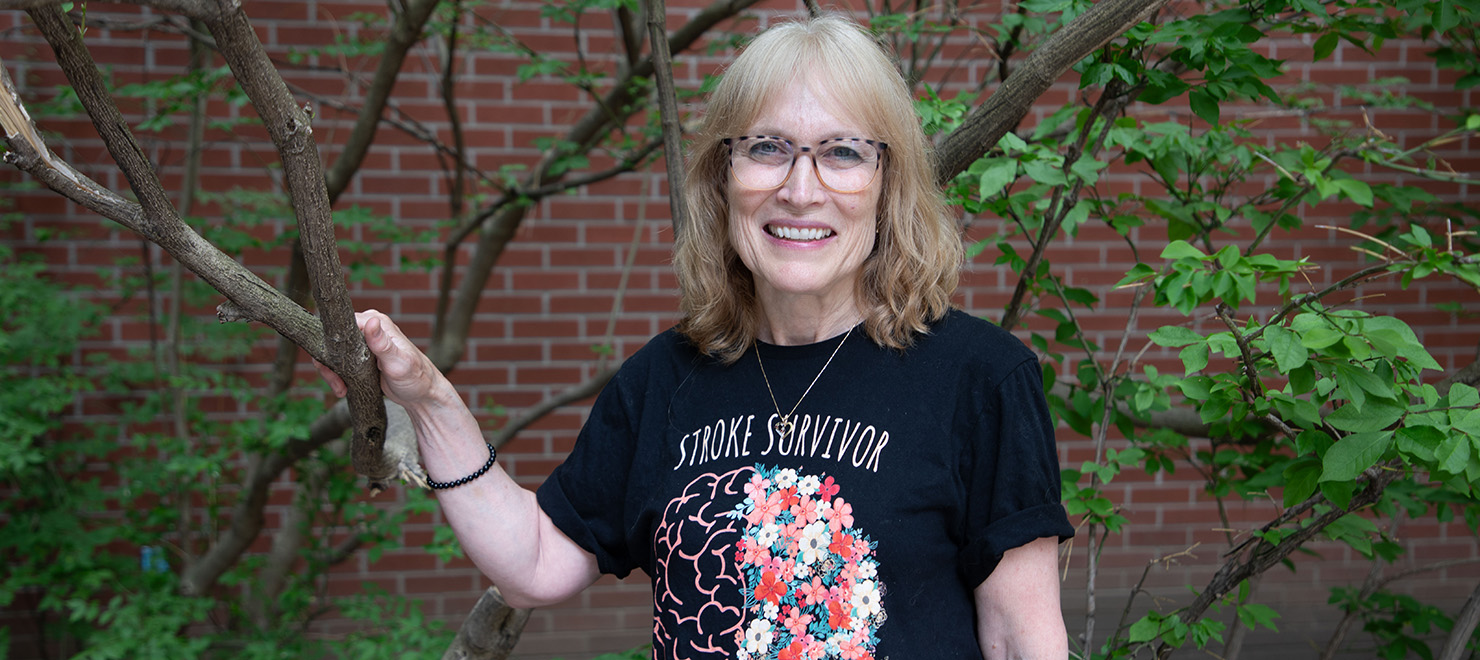
Dr. Patricia Poulin at The Ottawa Hospital Pain Clinic. Dr. Poulin is a Psychologist and Associate Scientist at The Ottawa Hospital and co-lead of the adult side of the Power Over Pain Portal.
Did you know that one in five Canadians lives with pain that lasts longer than three months?
This kind of persistent pain — often referred to as “chronic pain” — affects people of all ages, may not have any externally visible symptoms, and can feel overwhelming and disheartening to navigate, especially when you are first diagnosed.
Designed to help empower youth and adults living with chronic pain through education and peer support, the Power Over Pain Portal is a free virtual resource hub initially funded by Health Canada and maintained by The Ottawa Hospital in collaboration with partner health-care organizations.

What is the Power Over Pain Portal?
Since launching, the portal has reached over 280,000 Canadians and nearly 10,000 international users and has thousands of repeat visitors, who regularly access its pages for courses, videos, health advice, counselling, interactive workshops and more.
“The portal provides much-needed support to a segment of our population who require long-term care and can face significant barriers to accessing it,” explains Dr. Patricia Poulin, Psychologist and Associate Scientist at The Ottawa Hospital and co-lead of the adult portal.
Dr. Poulin says that she can confidently share the portal with her patients because, unlike many free online sources that rely on opinion rather than evidence, its content has been vetted both by medical professionals and by people living with persistent pain, who make sure the resources being shared are relevant to the challenges they face.
Designed for and by people living with persistent pain
Lynn Cooper is a member of the Power Over Pain Portal development team, a pain research advocate, and someone who has lived with persistent pain for more than 30 years.
She co-leads the Lived Experience Advisory Group, made up of seven people from across Canada, who meet monthly to review new resources and provide feedback to help shape the portal’s design so users can navigate the Portal easily and access the info they need in as few clicks as possible.
These navigational features include filters that help users quickly pull up resources addressing specific topics (such as sleep or mood), as well as a self-check-in questionnaire where users describe how pain is affecting their life and are recommended resources based on their answers.
“People can feel very lost at the start of chronic pain,” says Lynn. “The portal is helpful because it meets you where you are and can help you create an individualized pain management plan.”
The portal is regularly updated with new resources for different health conditions, as well as community-focused landing pages for groups such as veterans, to help connect people to more specialized, local resources.

It also provides important virtual opportunities for connection, like peer support programs, workshops and panel discussions on how to navigate the health-care system, safely exercise, deal with negative stereotypes, and more, while also managing chronic pain.
Being able to share their experiences and hear from others can empower people to get more involved in their own pain management journeys, says Lynn.
“Usually, we’re surrounded by others who, fortunately for them, aren’t experiencing persistent pain and so they can’t understand what we are going through,” she explains. “It’s quite meaningful when you can be in a space, virtual or in person, with people who understand what you’re going through.”
“By hearing what others are trying to manage their pain, and learning from evidence-informed resources, it can give people hope — if they could do it, you can do it.”
Visit the Power Over Pain Portal to learn more and view the schedule of events for National Pain Awareness Week in Canada.

Support patient care and research at
The Ottawa Hospital
You might also like…
What to do in an emergency: New first aid video series on YouTube
Would you know what to do if you saw someone experience a stroke, heart attack or opioid overdose? We’ve launched a series of easy-to-follow videos on YouTube that walk you through how to respond to common first aid emergencies.
Flu season 101: A quick guide to keeping the sniffles away
Got two minutes? This short guide could help you make it through flu season without stocking up on tissues.
Aging well: Guidance for older adults
In this special video series for both older adults and their loved ones, geriatric care specialists from The Ottawa Hospital offer guidance on navigating common health-care challenges that may arise with aging.
From survivor to supporter: Peer volunteers bring hope to patients recovering from stroke
Drawing on their own lived experiences as stroke survivors or caregivers, volunteers with March of Dimes Canada’s After Stroke Hospital Peer Connections program offer emotional support to those just beginning their recovery journey. Discover the difference they’re making and learn about how you can request support for a loved one — or become a beacon of hope yourself.
How to stay safe around water this summer
Drowning can happen to anyone — even strong swimmers. Emergency physician Dr. Christian Vaillancourt debunks common myths about drowning, explains how to act quickly to save a life, and shares what you can do to keep yourself and your loved ones safe around water.
What’s the difference between an optician, optometrist, orthoptist and ophthalmologist?
“Do I need to see an optician, optometrist, orthoptist or ophthalmologist?” We asked Ophthalmologist Dr. Annick Fournier to break down each role so you will know who to consult for your specific eye care needs.


 To reset, hold the Ctrl key, then press 0.
To reset, hold the Ctrl key, then press 0.





